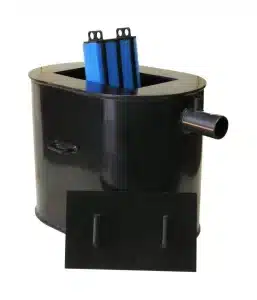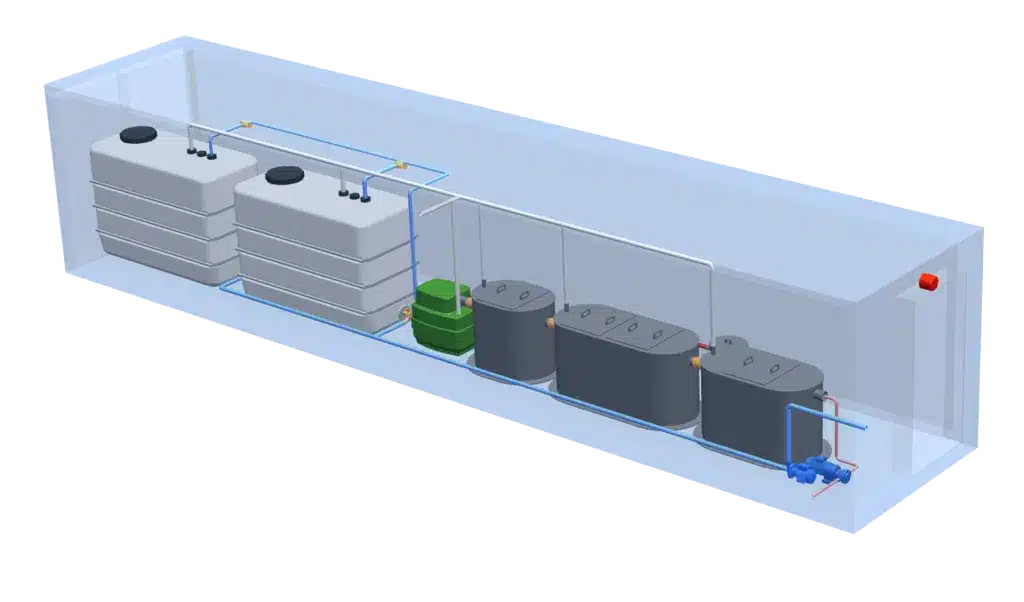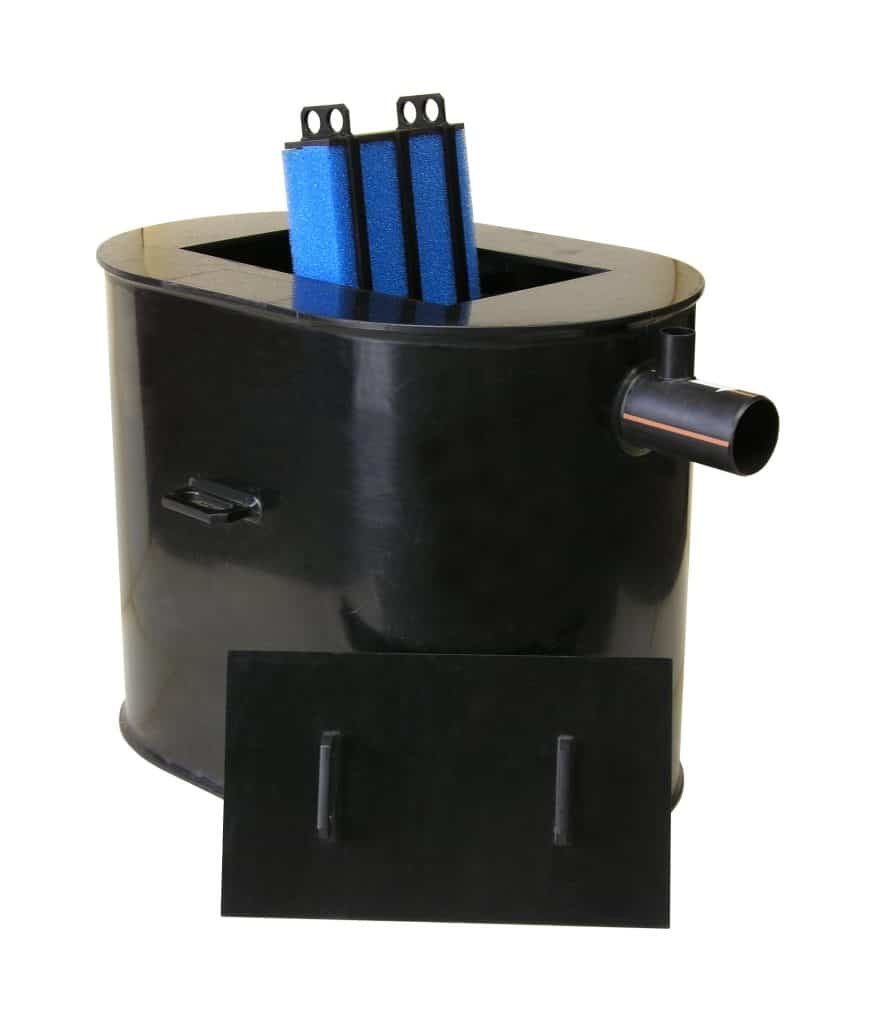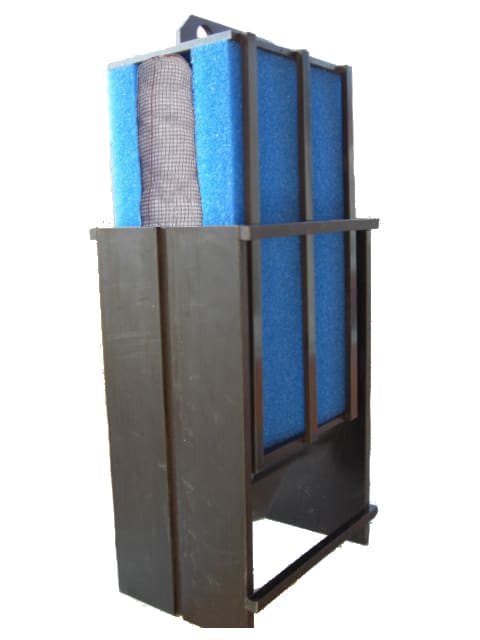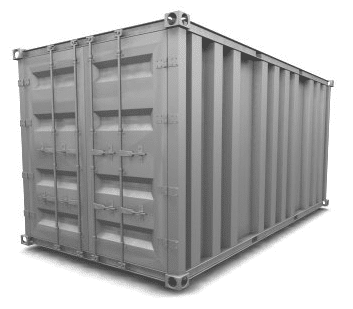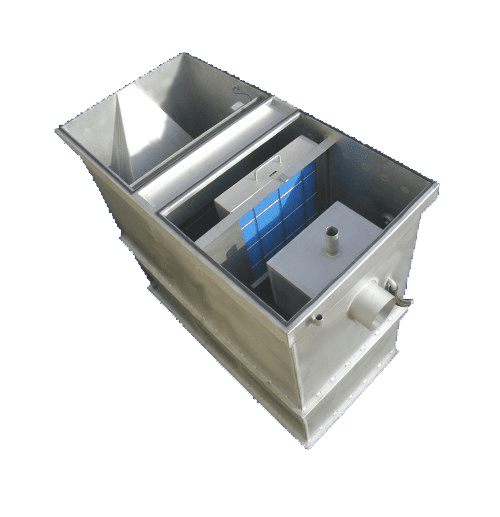Do you know about the hidden dangers in Alaska’s industrial wastewater? The Last Frontier is facing big environmental challenges. That’s why Alaska Above Ground Oil Water Separators are key in fighting water pollution. They help industries meet tough environmental rules and protect Alaska’s natural beauty.
In Alaska, oil production and heavy industry are big parts of the economy. That’s why handling oily wastewater right is crucial. Freytech’s systems remove harmful stuff from water before it goes back into nature. These systems are a must for businesses wanting to follow the law and avoid big fines.
Using Freytech’s Alaska oily water treatment solutions shows a company cares about the environment. By getting these systems, companies show they’re serious about keeping Alaska’s ecosystems safe. We’ll look into how these systems work and why they’re vital in Alaska’s industrial world.
Key Takeaways
- Freytech’s Alaska Above Ground Oil Water Separators are key for treating industrial wastewater
- These systems help companies follow strict environmental laws
- Oil water separators take out non-mixing oils and grease from wastewater
- Using these systems can prevent big fines for not following the rules
- Right oily water treatment is key to protecting Alaska’s nature
Understanding the Need for Oil Water Separators in Alaska
Alaska has a unique challenge with oily wastewater. Its clean environment and strong industries make it crucial to have effective oil water separators. With growing environmental worries, Alaska needs strong solutions for treating industrial wastewater.
Increasing Environmental Concerns
The Alaskan ecosystem is at risk from oil pollution. It’s key to treat oily wastewater right to protect wildlife and keep the state beautiful. Oil water separators are crucial for this protection.
Regulatory Compliance and Penalties
Alaska has strict rules for wastewater. Not following these can lead to big fines and harm a company’s reputation. Using reliable wastewater treatment systems helps avoid these issues and keeps a company in good standing with environmental agencies.
Common Sources of Oily Wastewater
Oily wastewater comes from many places in Alaska. Sources include engine cleaning, car wash stations, and industrial site runoff. Oil spills from equipment failure or mistakes can also happen. Good oil water separators are key for dealing with these pollution sources and keeping water clean.
Alaska Above Ground Oil Water Separators: Features and Benefits
Alaska oil water separation systems are designed for the unique needs of the Last Frontier. They come in different sizes and can handle various industrial needs. These units can remove up to 99.9% of oil from water, leaving it very clean.
Safety and following rules are key in making these separators. Many are UL 2215 Listed and STI Engineered and Labeled. This means they meet high standards. Some also have a double-wall design for extra safety and to protect the environment.
These separators are built to last in Alaska’s tough climate. They have special protection against corrosion. They use different materials that meet UL standards and work well for separating oil and water.
Choosing top-quality Alaska oil water separator tanks helps businesses follow the law, protect the environment, and work better. These systems are vital for handling oily wastewater in many fields. This includes oil and gas, manufacturing, and transportation industries.
How Alaska Oil Water Separators Work
Alaska oil water separator vessels are key in handling oily wastewater. They use advanced methods to split oil from water. This keeps the environment safe and meets legal standards.
Gravity-Induced Separation Process
The main idea behind these systems is gravity-induced separation. It uses the fact that oil and water have different densities. When the mix goes through the separator, oil floats up and water goes down. This makes separating them easy.
Enhanced Coalescing Technology
Today’s Alaska oil water separator vessels have better coalescing technology. This tech helps small oil drops merge into bigger ones. Bigger droplets are simpler to separate, leading to cleaner water.
Removal of Non-Soluble Oils and Grease
These systems are great at taking out non-soluble oils and grease from wastewater. They can handle hydrocarbons with specific gravities between 0.82 and 0.88. This makes them perfect for dealing with different oily wastewaters, like those with motor oils and light petroleum products.
Compliance with National Pollutant Discharge Elimination System (NPDES)
The National Pollutant Discharge Elimination System is key in Alaska for industrial wastewater treatment. It ensures that industries handling storm water meet the rules. Oil water separators are vital for this.
These separators are crucial in storm water systems. They process runoff to meet the US EPA’s Clean Water Act standards. With effective oily water treatment, facilities protect the environment and dodge big fines.
Oil water separators work hard to take out harmful stuff from wastewater. They use gravity and advanced tech to separate oil, grease, and pollutants from water. This is key for keeping water clean and saving Alaska’s natural beauty.
Choosing top-notch oil water separators is wise for Alaskan industries. These systems make sure businesses follow NPDES rules and show they care for the environment. By picking the right wastewater treatment, companies keep their profits and Alaska’s ecosystems safe.
Freytech Inc.’s Advanced Oil Water Separation Systems
Freytech Inc. is a leader in Alaska for oil water separators. Their systems are top-notch for facilities all over the state.
Enhanced Coalescing Technology
Their systems use advanced coalescing technology. This means cleaner water discharge, meeting high standards. Freytech’s separators can get water down to 5 PPM.
Separation Efficiency and Discharge Limits
Freytech’s systems go beyond North American limits of 10 PPM. They can even get down to 0.1 PPM for trace emulsified oil. This makes them stand out in Alaska.
Types of Hydrocarbons Separated
Freytech’s separators can handle many hydrocarbons. They work with motor oil, diesel, gasoline, and jet fuel. For more info, call Freytech Inc. at +1 (305) 372-1104.
FAQ
Why are oil water separators essential for facilities in Alaska?
Oil water separators are key for removing oils from water. They help meet the National Pollutant Discharge Elimination System (NPDES) rules. This avoids big fines for not following the rules. Alaska has strict rules to protect water and the environment from oil spills.
What are the common sources of oily wastewater in Alaska?
Oily wastewater comes from many places, like engine cleaning, washing cars, and storm water. Big spills can happen by mistake or equipment failure. That’s why good oil water separators are so important.
What features do Alaska above ground oil water separators offer?
Alaska’s above ground oil water separators have many features. They come in different sizes and can handle various flow rates. They can remove oil from water very efficiently, some as low as 5 ppm.
They meet UL 2215 and STI standards and have extra protection for safety. You can choose from different materials for better separation.
How do oil water separators work in Alaska?
In Alaska, oil water separators use gravity to separate oil and water. They work without needing power, using the natural flow of the water. This makes them simple and effective.
They use special technology to catch oils like motor oil and others. This helps keep our water clean.
Why is compliance with the National Pollutant Discharge Elimination System (NPDES) important?
Following the NPDES is a must for industries that handle storm water. Oil water separators are key in making sure storm water is clean. They help meet the Clean Water Act rules, protecting our environment and keeping us in line with laws.
What makes Freytech Inc.’s oil water separation systems advanced?
Freytech Inc. has top-notch oil water separators for Alaska. They use the latest technology for better separation, making the water very clean. Their systems can even remove tiny amounts of oil, making sure our water stays safe.
These systems work well with different types of oil, keeping our environment clean.


